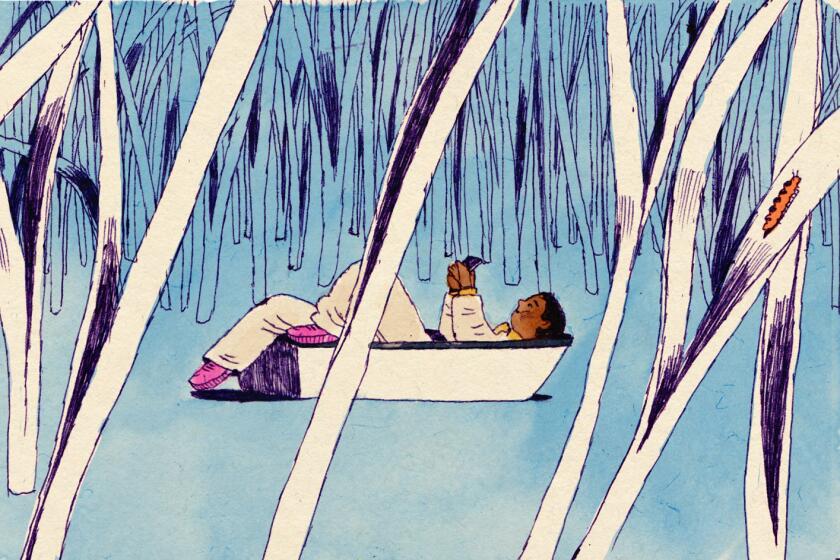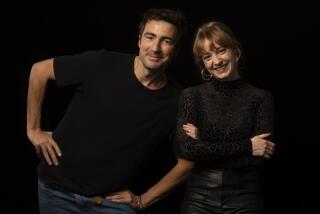(Illustration by Karlotta Freier / For The Times)
- Share via

The way we were
It turns out that images that evoke fond memories can soften pain. Scientists found that test subjects were less likely to perceive pain from a heating element on their arm if they were seeing pop-culture images from their childhood than if they were shown images that didn’t evoke nostalgia. Sounds like a handy trick for your next headache, right? Just scroll through snapshots, maybe watch some old Saturday morning cartoons, and voila. Here’s hoping.

Listen to teacher
If anyone needs a good belly laugh after the past few years, it’s the brave souls who have tried to keep America’s children safe and sane and learning and growing, no matter how many school shootings or COVID variants are in the headlines. A group of current and former teachers have put together a comedy tour about the foibles of modern schools, starting — where else? — in Florida, the state that legalized arming classroom educators. “They were trying to give teachers guns?,” one former teacher said on stage. “I’m not anti-gun, but I’ll tell you right now I’m anti-coworker. There are people I worked with I wouldn’t trust with a stapler.” The tour is organized by the online community Bored Teachers, which plans nationwide shows this summer.

What’s in a name?
Words are powerful and can casually do a lot of harm — but our word choice is also easy to change. An unexpected champion of social justice, the Entomological Society of America, shows how: It retired the common name “gypsy moth” last year to avoid using an ethnic slur to describe an invasive species. This month it announced the result of the renaming process for Lymantria dispar, which will now be known as the spongy moth because of its distinct porous eggs. “Decolonizing science is actually a really broad process,” said the president of the society. It intends to continue that noble work through its Better Common Names Project.
And one more ...
Dishwashers and detergents were designed for dirty dishes — meaning you aren’t supposed to wash dishes before loading them. Just scrape off the big chunks of food and call it good. I’ve been waiting my whole life for science to vindicate my laziness like this. Goodbye, guilt! What’s more: Skipping the prewash would save an average household 3,225 gallons of water per year.
A weekly feature aiming to provide some relief from doomscrolling.
More to Read
A cure for the common opinion
Get thought-provoking perspectives with our weekly newsletter.
You may occasionally receive promotional content from the Los Angeles Times.












